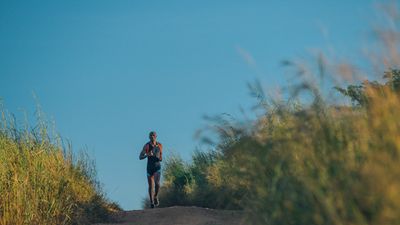Zambia's Olympic Medalist Samuel Matete on the Highs and Lows of Rio 2016
Zambia last won an Olympic medal 20 years ago in Atlanta. Okayafrica asks the legend his thoughts on Zambia at the Rio 2016 Olympics.
On August 13, several sites began reporting that the fastest man in the world Usain Bolt had been beaten in the Men’s 100m at Rio 2016 by Zambia’s Sydney Siame. It was reported that “ Siame did not just beat the long-standing champion but completed at 9:39 seconds, which makes a new world record.”
Tweets then began circulating by Zambians congratulating Siame. However, all this was untrue as Siame did not even qualify for the Rio Olympics. Zambia was represented by Gerald Phiri in the men’s 100m, John Chipangama in the marathon and Kabange Mupopo in the women’s 400m.
Twenty years ago, it was a different story at the Atlanta Summer Olympics. Samuel Matete, a track and field athlete from Chingola, a mining town about 260 miles from the capital Lusaka won the silver medal in the men’s 400m hurdles. Since then, Zambia has not claimed any Olympic medals. We asked the legend what his thoughts are on the current crop of runners that represented Zambia at the Rio 2016 Olympics, who makes his list of the greatest African sprinters at the Olympics and his thoughts on the future of track and field in Zambia.
Okayafrica: How would you rate the performance of the African athletes at the Rio 2016 Olympics?
Matete: I’ve been following the Olympics live and Kenya has done very well as usual South Africa has done well too. Ethiopia, Egypt, Morocco etc. have medals as well. We could always do better though. I expected Nigeria to have more medals as being a powerhouse of Africa, they should. I was impressed by South African runner Wayde Van Niekerk at this year’s Olympics. Van Niekerk winning the men’s 400m was one of the greatest moments in athletics. It’s not easy to run in lane eight and win. The fact that he broke the world record is great for Africa.
What are your thoughts on the Zambian Athletes that were sent to the games specifically the runners?
Kabanga Mupopo ran 50.22 at the African games and 50.88 at the Worlds, but her time at the Rio was 52.04 so her performance has gone down. If you look at the performance of Zambia’s Olympic athletes in the last four games (2004, 2008, 2012) we haven’t done well which means there needs to be more investment in the sport. More athletes need to be sent to compete in the Olympics in case someone is injured. In terms of the future, there is a tremendous amount of talent which I’ve seen in schools. In my early days as an athlete, there was a link between the national federation and schools. That’s how I came up.
You’ve represented Zambia at four Olympics (1988, 1992, 1996 and 2000) and you received your silver medal twenty years ago. Do you feel nostalgia when you watch the games now?
Yes I do, but as they say ‘once a soldier, always a soldier. ‘I was coached by people who were highly qualified and knew what they were doing and I look forward to the day when we can do more as a country. Medals open doors and I’d like the young people to know that if Matete did it, they can too.
Do you still run? What’s your current routine for staying active?
I don’t run anymore as one of the consequences of competing in hurdles is that my knees are weaker and they swell up. So I go to the gym instead and I cycle.
Do you think it’s harder to be an athlete now in this social media age? Athletes have cellphones and Instagram and can connect with fans in ways they couldn’t before which is great, but is that also a distraction to performance?
Every generation has their own talent. When I was coming up, we didn’t have all this technology. Very few people in Africa saw me competing live at the Olympics in Atlanta because we didn’t have DSTV (satellite television). There are more distractions now with cellphones and technology. I think technology is amazing, but we should find innovative ways to use it to get our kids back to sporting activities.
How are you helping improve athletics in Zambia?
There was a time that I wanted to stay in the United States, but I thought Africa needed me and Zambia too. I have a vast knowledge of the development of sports and can assist if I’m given an opportunity. We have a tremendous amount of talent that needs to be explored and developed.
